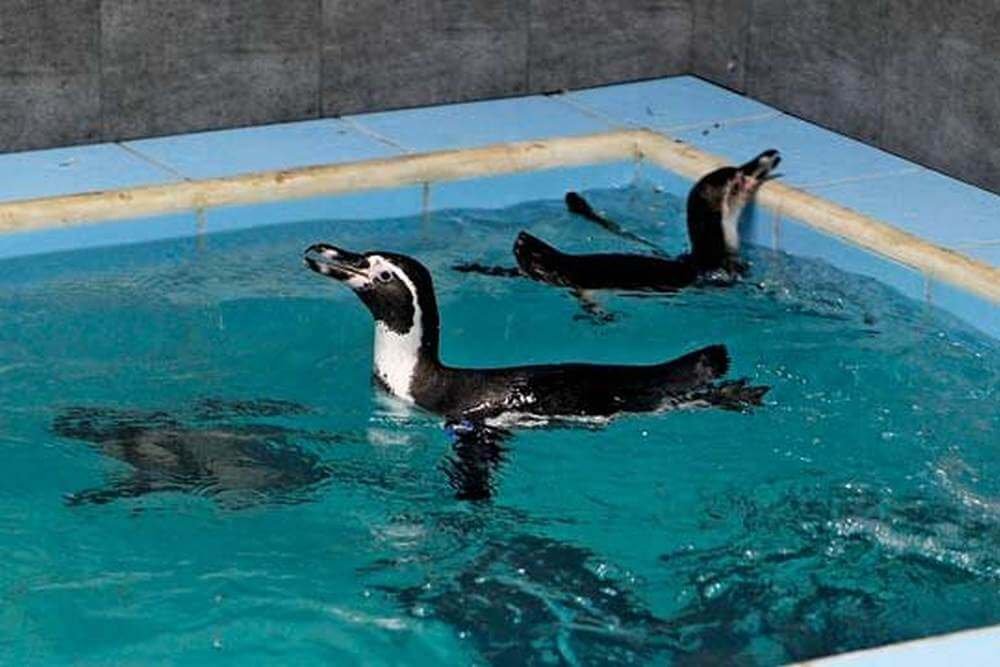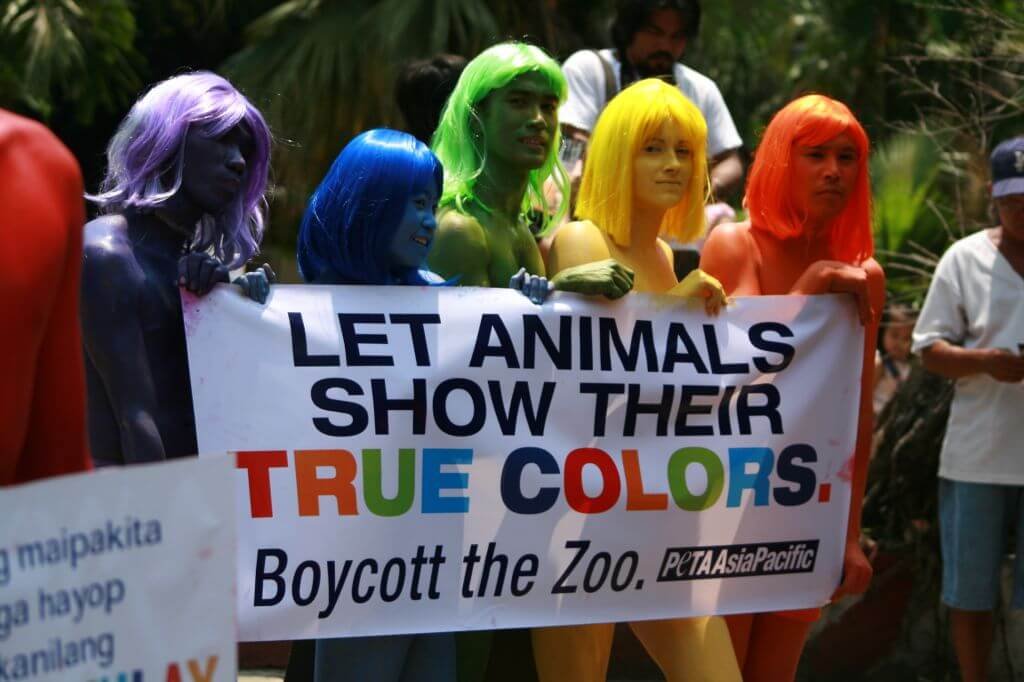In a first, The Byculla Zoo in Mumbai has just brought in a colony of penguins from South Korea. Eight Humboldt penguins, including three adult females, three adult males and two female baby penguins, will be kept in quarantine for at least 90 days, before they go on display in the Zoo in December this year.

Zoo Administrator Sanjay Tripathi told DNA:
“They arrived by flight kept in a special casing and as soon as they reached the zoo, they were shifted to the quarantine area that has all the facilities, including temperature control, air purifiers and others. They were even given food that includes fishes like sardines, which are easily available in Mumbai,”
The penguins were brought in from Coex Aquarium in Seoul, South Korea, and the Veermata Jijabai Bhosale Udyan, also called the Byculla Zoo, has reportedly spent over Rs 2 crore on the import. The birds, native to the cold coastal climates of Chile and Peru, will be monitored under quarantine for a minimum period of 3 months, to check for health aberrations and other problems. The quarantine period is also meant to acclimatize the birds to their new home. The birds are used to a temperature of 4-25 degrees Celsius.
An Australian agency called Oceanist has been involved to care for the birds till 2021, post which their care will be entrusted to zoo officials themselves. Though authorities feel positive about the import, animal welfare enthusiasts and activists, as well as environmentalists, have not reacted kindly to the initiative.
An activist, Anand Siva, told The Hindu:
“Have you seen the elephant enclosure? They are in chains in two sheds all day long, despite a large enclosure surrounded by a moat. There is a monkey with a deteriorating skin condition and is not being cared for. There is no veterinary doctor available at hand in the night. The penguins will suffer from a relocation crisis. There is also a ban on fresh inductions into the zoo by the courts.”
Byculla Zoo has a history of animal deaths, with over 160 inside-zoo, natural and unnatural deaths of birds and animals from 2010-11. But Zoo administrator, Sanjay Tripathi maintained a more positive outlook, saying that conservation efforts made by zoos and agencies have helped bolster the number of Humboldt penguins, a species which had been declining in numbers over the recent years. Zoo authorities also maintain that since these birds were bred in captivity, and are from Asia itself, they would have a far easier time acclimatizing to the Zoo.

The enclosures built for the birds have been specially designed, with appropriate temperature controls. But activists have not given up the fight yet.
Yet another activist, Ashar, told MidDay:
“The enclosure built for the penguins is only 400 square feet…these birds are used to swimming in oceans at nautical speeds. What will they do in just 400 square feet of space? Mumbai is going through a water crisis; this is not the need of the hour.”
“We will be filing a writ petition against the inclusion of these penguins in the zoo next week.”
Due to the recent spate of animal deaths in zoos the world over, an intellectual movement against the idea of captivating animals in Zoos for display purposes has gathered steam, with many questioning the institution. The model of ‘conservation’ adopted by these Zoos has come under fire from activists.
(Feature Image Source: Twitter/@timesofindia)

















